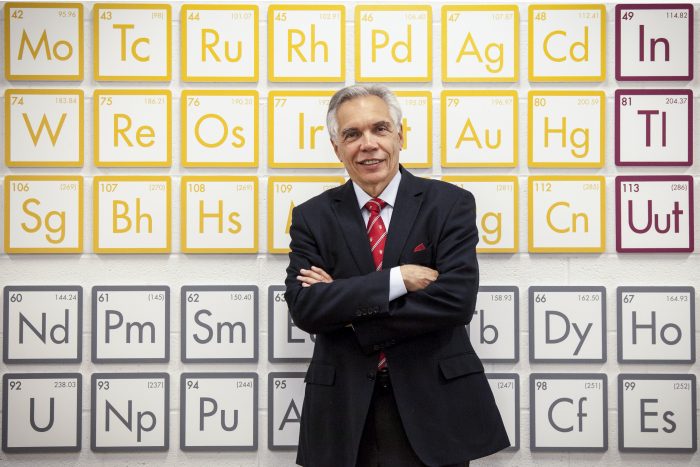By Lisa Dutton
Joe Schwarcz, PhD is the Director of the McGill Office for Science and Society. He has devoted much of his career to separating sense from nonsense. Dr. Schwarcz is well known for his informative and entertaining public lectures on topics ranging from the chemistry of love to the science of ageing. He has received numerous awards for teaching chemistry and for interpreting science for the public. Dr. Schwarcz is the only non-American ever to win the American Chemical Society’s prestigious Grady-Stack Award for demystifying chemistry. He hosts “The Dr. Joe Show” on Montreal’s CJAD radio and has appeared hundreds of times on The Discovery Channel, CTV, CBC, TV Ontario and Global Television. Dr. Schwarcz also writes a regular column for the Montreal Gazette titled “The Right Chemistry” and has authored several books.
Dr. Schwarcz will deliver his accredited Continuing Professional Development (CPD) presentation, titled “Diet and Cancer” on Thursday, November 21, from 18:30 to 19:30. Attend onsite or by webinar. Register today at cpd.mcgill.ca/register.
Check out other upcoming educational and accredited talks organized by McGill CPD Office at cpd.mcgill.ca/events.
Dr. Schwarcz took some time to answer a few questions for us ahead of his talk.
1. How do we know that there is a link between diet and cancer?
Most of our knowledge about the link between diet and cancer comes from epidemiological or case-control studies. Epidemiological studies are based on subjects filling out questionnaires about their diets, and these are notoriously unreliable. Still, given that large populations are usually involved, they can still furnish valuable information. Case-control studies are more relevant, but due to confounders cannot establish cause-effect relationships. Although aspects of each study can be criticized, the very large number of studies that have been carried out can lead to some reliable generalizations. A diet that emphasizes plant products and minimizes red meat, alcohol, sugar, refined flour and processed foods (processed meats in particular) is the best bet for reducing the risk of cancer.
People should aim for 5-7 servings of fruits and vegetables per day and keep added sugar consumption below 40 grams. Red meat servings should be sporadic with roughly 4 oz per serving, and processed meats should be an occasional treat. Cereals and bread should be made from whole grains. Cruciferous vegetables such as broccoli and Brussels sprouts may offer particular benefits. There are no dietary supplements that have been shown to reduce cancer risk, but there is some evidence that tomato, flaxseed and unfermented soy products may reduce the risk of prostate cancer. Sugar-sweetened beverages should be minimized, if not eliminated. There is no compelling evidence that artificial sweeteners are linked to cancer. High-temperature cooking of meats is a concern because of the formation of heterocyclic amines and polycyclic hydrocarbons that are carcinogenic. Recently, it has been shown people who regularly consume unsweetened yogurt containing live bacteria and fiber-rich foods have a reduced risk of lung cancer.
Sugar is linked to an increased risk of obesity, which in turn is linked to an increase in the risk of cancer. But there is also the possibility that sugar can be implicated in cancer independent of the obesity factor. High sugar intake can lead to insulin resistance and that leads to higher circulating levels of insulin, which in turn is associated with an increased risk of cancer.
The Mediterranean diet features little red meat, little added sugar, lots of nuts, fruits and vegetables, particularly olives and olive oil. There is some epidemiological evidence that such a diet is associated with a lower risk of cancer. Another diet that has such an association is the Okinawan Diet, which also is mostly plant-based and has a ratio of carbohydrates to protein of 10 to 1, reflecting a low meat intake. One French study claimed that people who eat primarily organic foods have a reduced risk of cancer, but the study’s methodology has been criticized.
To register for Dr. Schwarcz’s accredited talk and/or to learn about other upcoming accredited CPD talks go to cpd.mcgill.ca. Presentations offered during the 2019-2020 season are free for Faculty of Medicine students and residents.
November 13 2019

